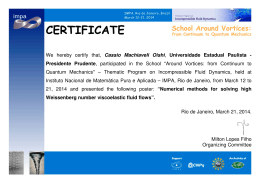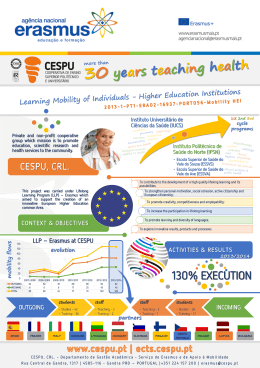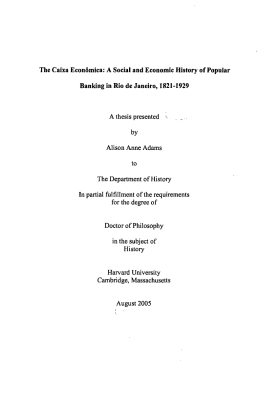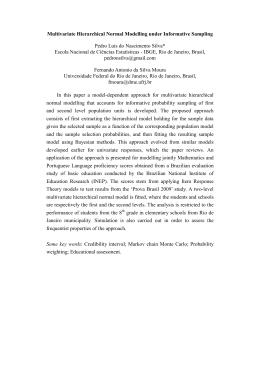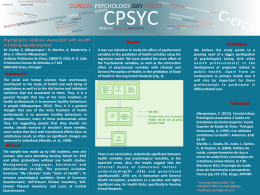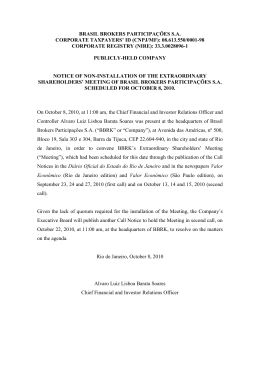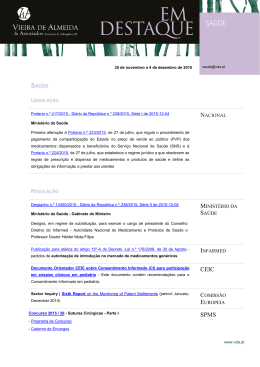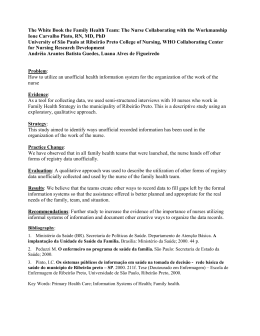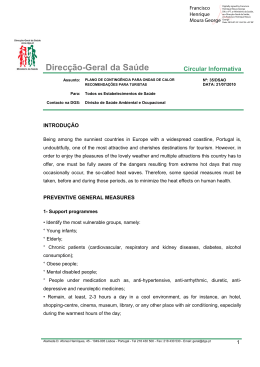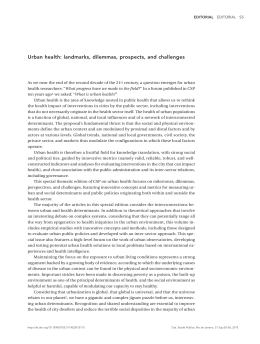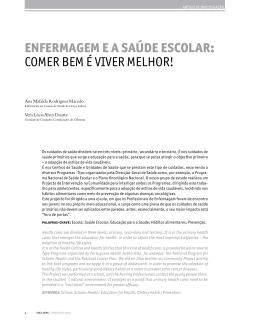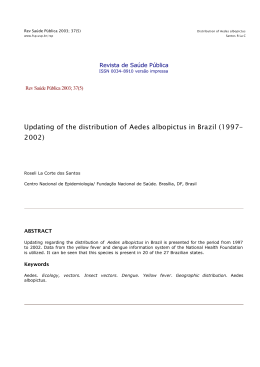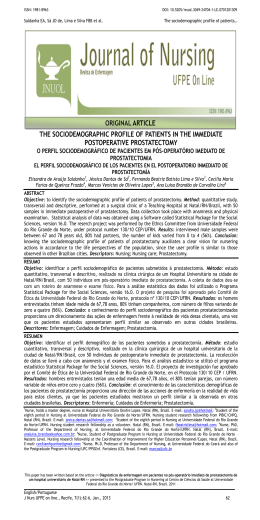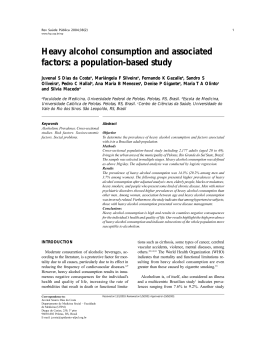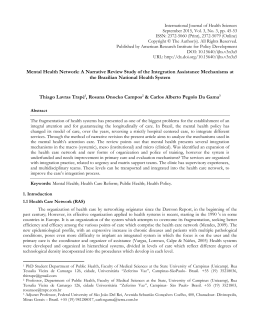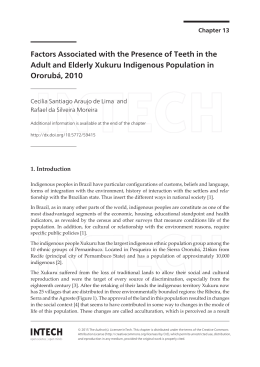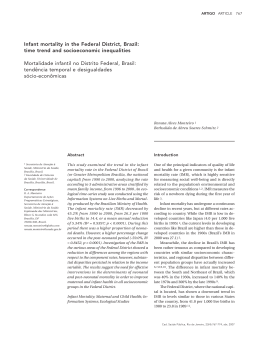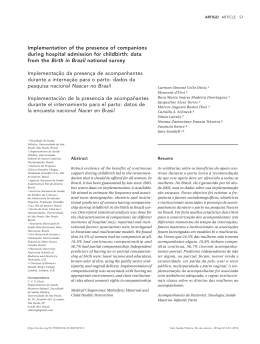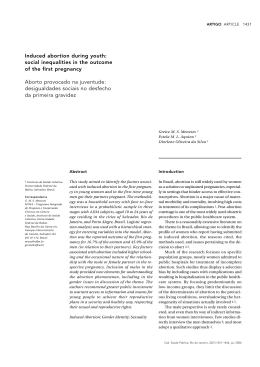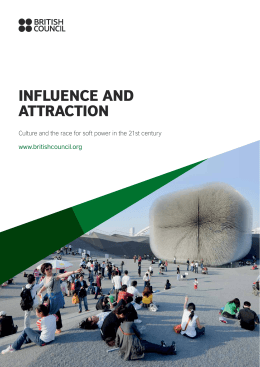1 PERSPECTIVAS PERSPECTIVES Global health and health diplomacy Saúde global e diplomacia da saúde La salud global y la diplomacia de la salud Paulo Marchiori Buss Centro de Relações Internacionais em Saúde, Fundação Oswaldo Cruz, Rio de Janeiro, Brasil. 1 Correspondence P. M. Buss Centro de Relações Internacionais em Saúde, Fundação Oswaldo Cruz. Av. Brasil 4365, Rio de Janeiro, RJ 21045-900, Brasil. [email protected] Cadernos de Saúde Pública (CSP)/Reports in Public Health, in keeping with contemporary public health trends, has decided to create an editorial division on Global Health and Health Diplomacy to meet the growing demand in this specific area of public health knowledge. Global health and health diplomacy have comprised one of the most fascinating and dynamic themes in the early 21st century. The world is experiencing a systematic crisis in global capitalism, expressed as “sub-crises” in the economic, social, environmental, energy, food, health, and even ethical spheres (given the fraudulent enrichment of international financial capital, for example), with profound consequences for human and ecosystem health. The well-known social, economic, environmental, and health inequities between and within countries are exhaustively explained by evidence on class society and the prevailing capitalist mode of production and consumption, which proves inequitable, exclusionary, and harmful to the environment, whether analyzed as a whole or according to its various inherent risk factors. Both “global governance for health” and “global health governance” are undergoing profound and dynamic challenges. The World Health Organization (WHO), the principal agency for global health governance, launched a reform process in 2010, originally intended to guarantee Cad. Saúde Pública, Rio de Janeiro, 29(1):8-9, jan, 2013 1 adequate financing for the organization. However the member states turned the process into a broader reform, addressing the objectives, work methods, and pluriannual program, although without altering the WHO Constitution (http:// www.who.int/about/who_reform/en/index. html). The reform was expected to include a reorientation of WHO priorities in the next five-year period, in light of the above-mentioned profound global transformations. For example, it is frustrating and regrettable that the 12th WHO General Program of Work (2014-2019) (http://apps. who.int/gb/e/e_eb132.html), currently under debate, assigns no priority to such vital themes as “health in the development process” or “social determinants of health”. Both were explicitly avoided by the more powerful countries after heated debates in the World Health Assembly in 2012, while Brazil’s delegation spearheaded the defense of the inclusion of these issues, not only strategic but also far-reaching and essential for an adequate approach to the contemporary health-disease process. This context highlights the importance of the reelection of Dr. Margaret Chan as Director-General of the WHO and the recent election of Dr. Carissa Etienne as Director of the Pan-American Health Organization (PAHO), after the agency’s 10 fruitful years under the direction of Dr. Mirta Roses. Cad. Saúde Pública, Rio de Janeiro, 29(1):1-2, jan, 2013 2 Buss PM Meanwhile, the well-known social determination of health (http://dssbr.org) demands that various non-health sector policies ensure mutual coherence in relation to their impact on human and ecosystem health. It is thus important to establish connections at the global level between health and the definition of the post-2015 Development Agenda, which will replace (or complement?) the Agenda set by the 2000 Millennium Summit. The question is how health will appear on the Agenda for Sustainable Development Goals (SDGs) after its prominence in the Millennium Development Goals (MDGs), besides the impact the other SDGs – and non-health sector global policies – will have on human and ecosystem health. Many active actors in the global debate contend that “universal health coverage” should be the goal of health within the sustainable development goals. The question is which “universal coverage” and which “health” we are talking about. The initial indications are discouraging, as provided in the WHO discussion paper (http://www. worldwewant2015.org/node//279357) published on the website of the global health consultation (http://www.worldwewant2015.org/health) undertaken by WHO, UNICEF, UNAIDS, and the governments of Sweden and Botswana on behalf of the United Nations Secretariat. Although denying that the issue involves the traditional “minimum health packages” (a sad legacy), but rather purporting to “reinforce health systems”, thus far the text presents, as usual, a reductionist view of health and health systems. Since the paper focuses mainly on “health care” (important, but only part of the complex whole embedded in the concepts of “health” and “health systems”), the document totally overlooks, as did the notorious 1993 World Bank Report (http://files.dcp2. org/pdf/WorldDevelopmentReport1993.pdf), all the indispensable dimensions of “public health”, to cite only one of the paper’s many unacceptable omissions. Brazil has participated actively in this entire process through what has been called “health diplomacy”, a new field of knowledge and practice whose object is health and health-related international negotiations, involving many disciplines and with participation by professionals from diverse backgrounds such as diplomats and health experts. In addition to spearheading the World Conference on Social Determinants of Health (WDSDH) (Rio de Janeiro, October 2011; see http://dssbr.org, especially the Rio Political Declaration on SDH http://cmdss2011.org/ site/wp-content/uploads/2011/12/Decl-Rioversao-final_12-12-20112.pdf) and participating decisively in the United Nations Conference on Cad. Saúde Pública, Rio de Janeiro, 29(1):1-2, jan, 2013 Sustainable Development (UNCSD) (Rio de Janeiro, June 2012; see http://www.uncsd2012.org/ thefuturewewant.html for the final document of the Conference, The Future We Want) – both themes profoundly linked to “global governance for health” – country’s health diplomacy has also played a pivotal role in the WHO reform process since the beginning, which means “global health governance”. The Brazilian academic community has much to learn from (and contribute to) this challenging global process. The Oswaldo Cruz Foundation (Fiocruz) has a particularly outstanding role with its growing importance in Brazilian foreign policy, especially in international health cooperation 1,2 and with its conceptual approach and practice in “structuring cooperation for health” 3,4. Following the WCSDH and UNCSD, in which Fiocruz was a leading political and technical actor, the Foundation also established a portal (http://dssbr.org) that is intended to maintain the highest level of debate on the issues discussed in this paper. CSP plans to contribute to this entire global policy process of the utmost relevance for the future, opening its pages to what is always an intelligent and pertinent debate by the Brazilian public health scientific community. 1. 2. 3. 4. Buss PM, Ferreira JR. Ensaio crítico sobre a cooperação internacional em saúde. RECIIS Revista Eletrônica de Comunicação, Informação & Inovação em Saúde 2010; 4:46-58. Buss PM, Ferreira JR. Brasil e saúde global. In: Pinheiro L, Milani CRS, organizadores. Política externa brasileira. Rio de Janeiro: Editora FGV; 2012. p. 241-65. Almeida C, Pires-de-Campos R, Buss PM, Ferreira JR, Fonseca LE. A concepção brasileira de “cooperação Sul-Sul estruturante em saúde”. RECIIS Revista Eletrônica de Comunicação, Informação & Inovação em Saúde 2010; 4:59-70. Buss PM. Structuring cooperation for health. Lancet 2011; 377:1722-3. Received on 14/Nov/2012 Approved on 15/Nov/2012
Download
